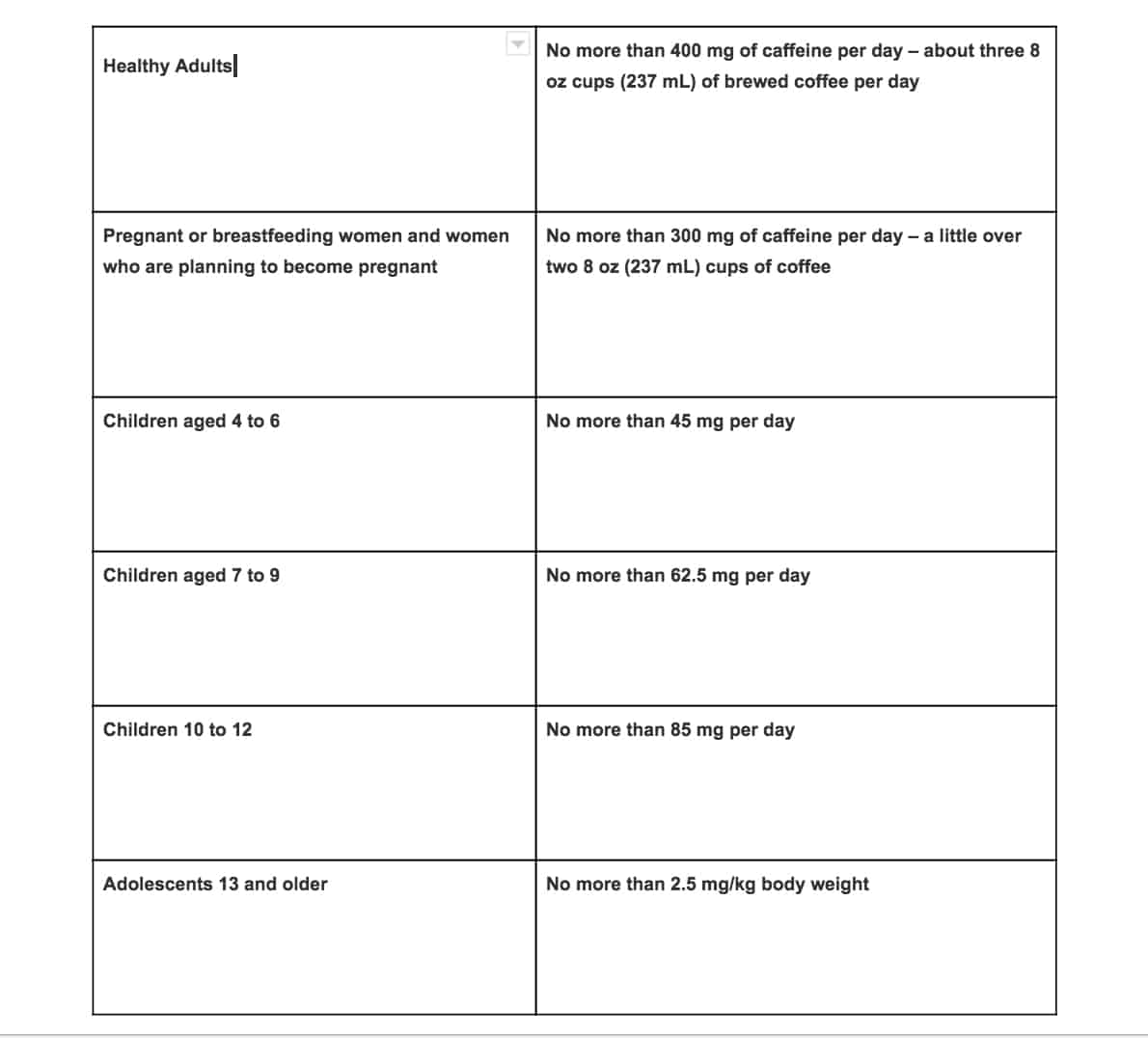Are You Ingesting Dangerous Levels of Caffeine?
Published May 29, 2017 at 5:23 pm

Do you ingest way too much caffeine? While you might be aware that you’re getting your fair share of it from your three or four cups of morning coffee, you might not realize you’re also getting caffeine from foods, other drinks and even drugstore medications.
So if you’re a caffeine addict, you’re definitely not alone–but you might want to figure out how much is too much for you.
Health Canada recently stepped into the spotlight to draw attention to a substance that Canadians consume a fair amount of–caffeine. As you no doubt know, caffeine is found in a number of foods and beverages (pop, energy drinks, chocolate, coffee and tea) and can occur naturally or artificially.
Interestingly enough, it’s also found in certain health products, including energy shots and some over-the-counter cold and headache medicines.
While this isn’t a problem in and of itself–modest amounts of caffeine are typically fine for most healthy adults–too much caffeine (some of which you might not realize you’re consuming) can lead to insomnia, headaches, irritability and nervousness.
Health Canada says that some people who are sensitive to caffeine can experience these effects at low levels. Other people, such as women who are pregnant or trying to conceive, could experience an increased risk of miscarriage and low birth weight if they ingest too much caffeine.
Health Canada also says that children are also considered to be at greater risk of experiencing adverse effects from caffeine and that recommended limits for children and adolescents are based on their body weights.
Here’s a chart listing what caffeine levels are appropriate per demographic, courtesy of health Canada:

You can learn more about caffeine in food here.
If you have concerns about your caffeine intake or sensitivity, Health Canada advises you to speak with your doctor.
insauga's Editorial Standards and Policies advertising





